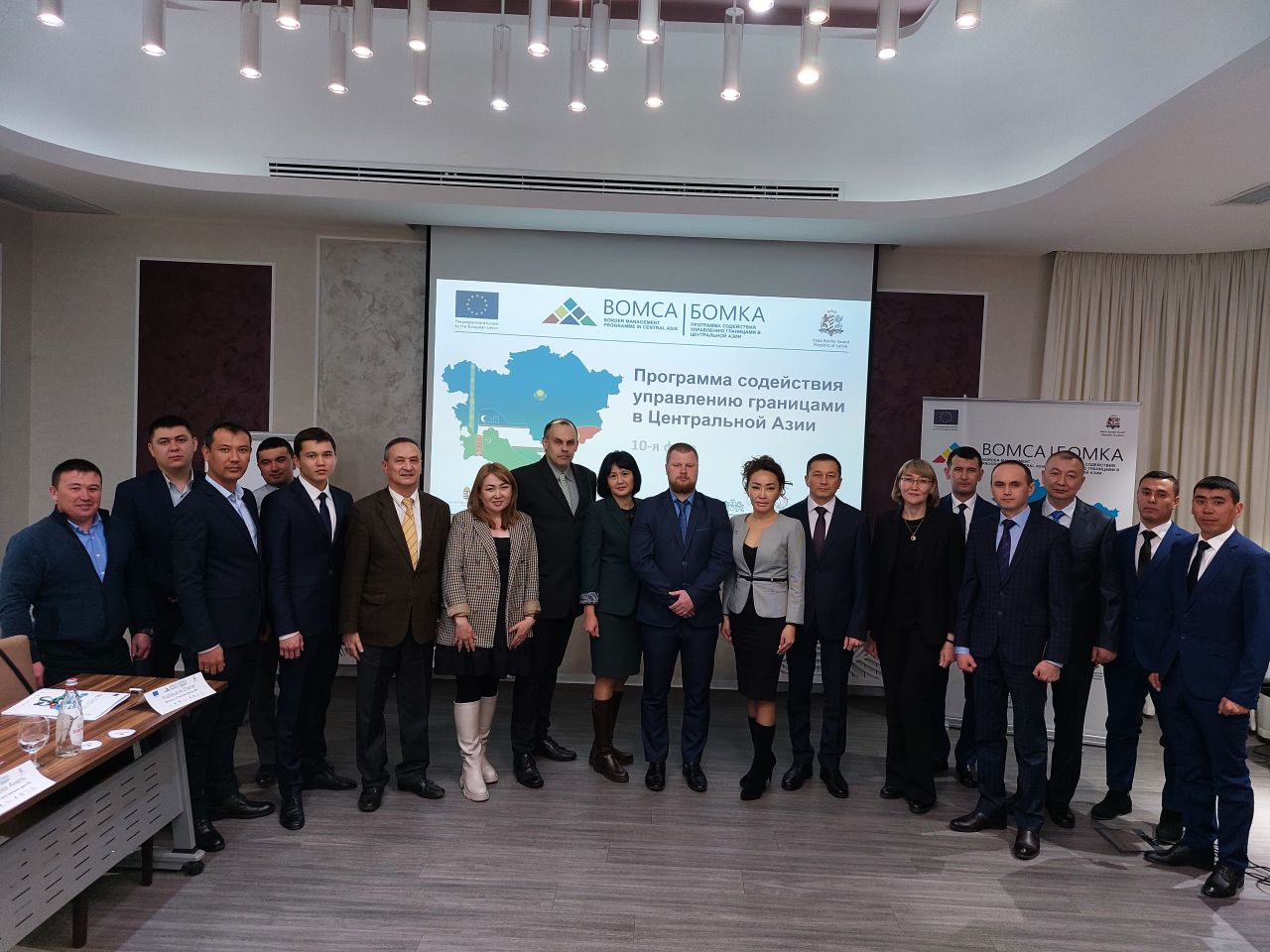From February 22-24, the Border Management Programme in Central Asia held a national workshop in Almaty for the experts of K-9 Centres of Kazakhstan, improving the K-9 service work and training system of Kazakhstan law enforcement agencies.
The workshop involved studying the standards of the European FRONTEX Agency and learning from the experience of the Border Guard Services of Latvia and Lithuania. It developed the participants’ understanding of the organisation, role, capability and requirements of canine units in detecting different types of smuggled goods, including arms, explosives, ammunition, drugs, and precursors. The practical sessions involved visits to border crossing points at the international airport and the Border Guard K-9 Centre in Almaty, to learn from the first-hand experience of the K-9 service and introduce the infrastructure and methods in practice.
The workshop was led by experts from the Dog Handlers’ Centre of College of the State Border Guard of Latvian Republic and the Dog Handling Activity Division of the State Border Guard Service under the Ministry of the Interior of the Republic of Lithuania. The training covered aspects of the organising and conducting the system of service in the K-9 Centres of the Committee of National Security, Agency for Financial Monitoring, and Ministry of Internal Affairs of the Republic of Kazakhstan. The workshop was part of a series of activities planned for each country in the region. During December 2021 and January 2022, similar training sessions were held in Kyrgyzstan, Tajikistan and Uzbekistan.
The Border Management Programme in Central Asia (BOMCA), funded by the European Union (EU), aims to enhance security, stability and sustainable growth in the region, while supporting cross-border cooperation and improving living conditions for people in the border areas of Central Asia. Since its implementation in 2003, BOMCA has played a leading role in strengthening cooperation between border control authorities through the application of the concept of integrated border management, as well as in bringing border control in line with international and the EU standards.

